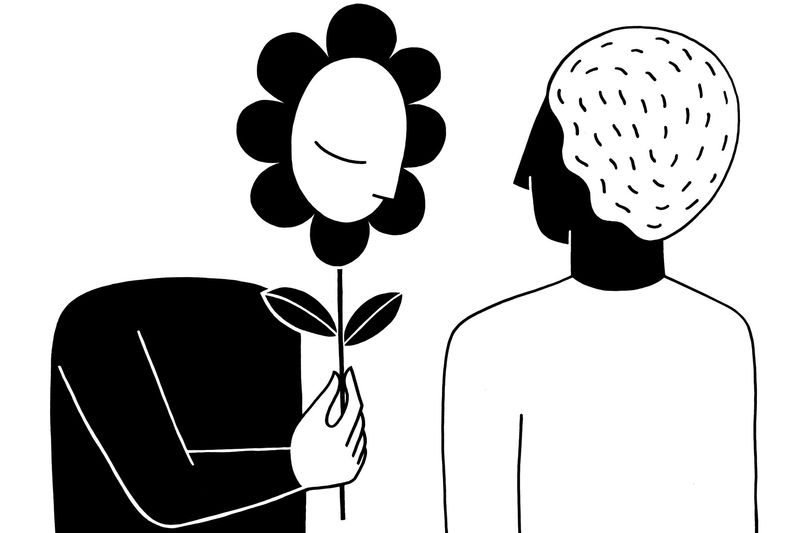20 Phrases That Come Off as Plain Rude (Even If You Don’t Mean Them That Way)
Sometimes, it’s not what you say—it’s how it lands. You could have zero bad intentions and still make someone feel small, dismissed, or straight-up disrespected.
And most of us have definitely dropped a line or two that we thought was neutral… only to realize from the side-eye (or icy silence) that, oops—that sounded kinda rude. Whether it’s tone, timing, or just plain awkward phrasing, words carry weight.
So here’s your friendly, non-judgy list of 20 phrases that come off as plain rude—even if you didn’t mean them that way. Use this as your cheat sheet for the next time something slips out and you see that look—you know the one.
Because sometimes, the best way to connect is by listening, learning, and tweaking what comes out of your mouth. Let’s get into it:
1. “You look tired.”

It sounds innocent, right? But if you’ve ever been on the receiving end, you know that hearing “You look tired” feels like someone just pointed out your under-eye circles to the whole room. Suddenly, you’re reminded of every late night and skipped concealer.
Even if it’s meant with concern, it puts someone on the spot about their appearance. It can make them feel self-conscious or even worry that others are quietly judging, too.
A better move? Ask how they’re feeling or if they need support, but skip the unsolicited beauty commentary. Trust me, if someone’s tired, they already know.
2. “Relax.”

Here’s a quick way to crank up someone’s stress: Tell them to relax. Honestly, has anyone in the history of forever ever actually relaxed after hearing that?
It comes across as dismissive, like their feelings or worries are overblown. That’s a surefire way to make someone feel childish or irrational, which just adds fuel to the fire.
Instead, try validating what’s going on. A simple, “I get why you’re upset” works wonders compared to being told to chill. Empathy trumps bossiness every single time.
3. “You’re so sensitive.”

Those three words sting more than people realize. Saying “You’re so sensitive” doesn’t just minimize someone’s feelings—it also flips the blame onto them for having a perfectly normal reaction.
It creates a wall between people, making it harder for someone to express themselves honestly next time. Instead of feeling supported, they’re told their emotions are somehow wrong.
Next time, try asking what’s behind their feelings or just listen quietly. Sometimes, all someone wants is to be heard without judgment or labels.
4. “That’s not how I would’ve done it.”

Oof—unsolicited advice alert. When you say, “That’s not how I would’ve done it,” it’s giving strong passive-aggressive energy, even if you didn’t mean it that way.
Maybe you’re just sharing your approach, but to the other person, it feels like their efforts are being critiqued and found lacking. It can kill confidence and turn a learning moment into pure defensiveness.
If you really want to help, try asking if they’d like feedback. Most people appreciate support when it feels like an offer, not a put-down.
5. “I was just joking.”

The go-to phrase for dodging responsibility. Saying “I was just joking” after a comment lands badly is like trying to erase the sting with a magic wand—it never works.
What it really does is dismiss the hurt and suggest the other person can’t take a joke. That’s not fair. It’s okay to mess up, but doubling down doesn’t make things better.
If you ever see that cringe in someone’s eyes, own it. A real apology means more than pretending your words never counted.
6. “Must be nice.”

“Must be nice.” Three words laced with jealousy. Instead of celebrating for someone, it slides right into passive-aggressive territory—almost like you’re saying, ‘Well, that could never be me.’
Even if you don’t mean it, it sounds like you’re bitter or can’t be happy for others. Most people just want their good news received with excitement, not shade.
Next time, try something like “That’s awesome for you!” Even if it feels hard, cheering each other on is way more fun than keeping score.
7. “No offense, but…”

Here’s a red flag in phrase form: “No offense, but…” We all know what’s coming next isn’t going to be a compliment, right?
It’s a warning bell that usually means, “Prepare to be insulted, but don’t get mad at me!” Instead of softening the blow, it just makes the following words feel sharper.
If you catch yourself about to say this, pause. Ask yourself if what you’re about to say is really necessary—or just going to land as rude.
8. “Calm down.”

“Calm down” almost never helps. In fact, it works like emotional lighter fluid. If someone’s upset, those words feel like you’re brushing them off or acting like they’re overreacting.
Instead of bringing peace, it sparks defensiveness or even more anger. It’s a phrase that can totally shut down a real conversation.
A softer approach? Ask what they need or how you can help. People open up when they feel respected, not dismissed.
9. “It’s just common sense.”

This phrase might as well be a shortcut to making someone feel stupid. When you say, “It’s just common sense,” you’re basically telling them they’ve missed something obvious—and who wants to hear that?
People’s backgrounds and knowledge are different. What’s obvious to you might be new to someone else. Belittling them does nothing but build walls.
A gentle offer to help next time goes a lot further than making someone feel small. We all started somewhere!
10. “Good for you.”

Tone is everything. “Good for you” can sound genuinely supportive, or—if the voice is just a little too flat—it turns into the verbal version of a slow clap.
It can come off as patronizing, like you’re not actually impressed or maybe even rolling your eyes inside. No one wants to feel like their win is being brushed aside.
Try swapping in a specific compliment or just sharing in someone’s excitement. It feels way more sincere than a forced pat on the back.
11. “That’s not my problem.”

There’s cold, and then there’s “That’s not my problem.” Even if you don’t have the answer or aren’t in charge, those words are like slamming a door in someone’s face.
It’s a quick way to make people feel abandoned or unimportant, especially in tough moments. Sometimes just showing a little concern, even if you can’t fix it, makes all the difference.
A simple “I wish I could help, but I’m not the right person” keeps things human—without sounding stone-hearted.
12. “You always…” or “You never…”

Oh, the drama of absolutes. “You always” or “You never” statements are classic ways to turn a simple disagreement into a soap opera.
They put people on the defensive, making it feel like every mistake or misstep is being tallied up. It’s less about solving the issue and more about declaring war.
Try focusing on the specific situation instead. It lowers the volume and keeps things from blowing up into an all-out argument.
13. “Wow. You actually look nice today.”

Let’s talk about the secret sting of the word “actually.” When someone says, “Wow, you actually look nice today,” it’s not a compliment—it’s a backhanded little jab.
That tiny word hints you don’t usually look good, even if they didn’t mean it that way. It’s one of those phrases that lingers in your brain all day.
Stick to straightforward compliments and leave the qualifiers out. People remember how you make them feel, not just what you say.
14. “You took that the wrong way.”

Blaming someone else for misunderstanding you? Oof. Saying, “You took that the wrong way” feels like you’re dodging responsibility and putting the burden on them.
Maybe you didn’t intend to hurt them—but it’s about how your words landed, not just what you meant. If someone is hurt, it’s okay to apologize and clear things up.
Taking a second to hear them out can save a friendship (or at least make things less awkward at brunch).
15. “At least…”

“At least…” sounds like a shortcut to comfort, but it usually just drops a wall between people. When someone shares something hard, they want empathy—not a silver lining forced down their throat.
Saying “At least you have…” or “At least it’s not…” can feel minimizing, like you’re brushing off their pain. It makes people feel unheard, even if your heart’s in the right place.
Sometimes the best support is just listening. You don’t always need to fix things with words.
16. “Are you really going to wear that?”

Fashion police, incoming! “Are you really going to wear that?” is one of those phrases that instantly makes someone want to crawl under a blanket and hide.
Clothes are personal, and comments like this can leave a lasting dent in someone’s confidence. Even well-meaning friends can make a bad day worse with a badly timed critique.
Unless someone asks for an opinion, zip it. Everyone deserves to feel good in their own choices.
17. “I’m just being honest.”

Blunt honesty is overrated. When someone says, “I’m just being honest,” it often sounds like an excuse for rudeness wrapped in the name of truth. There’s a fine line between being real and being harsh.
It can chip away at trust, especially if it’s used to justify hurtful comments. Empathy should always tag along with honesty if you want your words to land kindly.
Being thoughtful doesn’t make you fake—it just means you care about how your message lands. That’s real honesty.
18. “That’s not very professional of you.”

Unless you’re someone’s boss or HR, “That’s not very professional of you” reads as judgmental. It’s rarely constructive and almost always puts the other person on the defensive.
There are kinder ways to call out behavior if it genuinely matters. Try focusing on the action, not attacking their entire character.
People remember how they were corrected, not just what was said. A little tact goes further than a scolding.
19. “Why are you still single?”

Of all the nosy questions, this one wins. “Why are you still single?” sounds like a search for flaws, not an actual conversation starter.
It’s loaded with assumptions and can make someone feel like they’re falling behind on some invisible timeline. Relationships aren’t a competition and being single isn’t a problem to solve.
Ask about what makes them happy instead. There’s so much more to a person than their relationship status.
20. “Wow, you’ve lost weight!”

Compliments about weight are tricky territory. “Wow, you’ve lost weight!” might be meant as praise, but you never know what’s really going on behind the scenes.
Maybe she’s dealing with stress, illness, or something personal. Focusing on someone’s body can bring up more insecurity than joy—no matter your intention.
Best approach? Compliment the person, not the pounds. Celebrate who they are, not just what’s on the outside.







